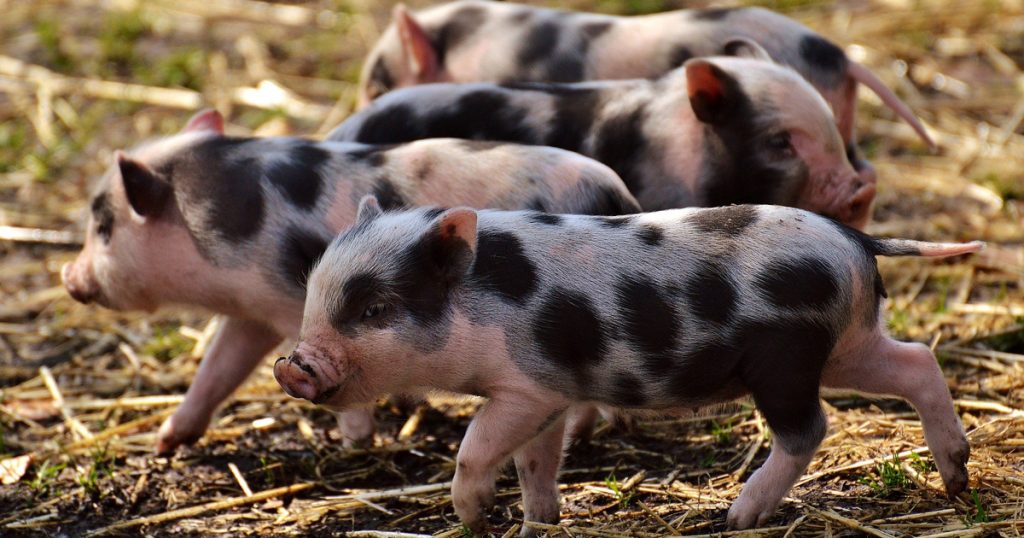Brazil (University of Sao Paulo) The piglets from sows that had pain during gestation are more aggressive

Piglets born from swine females, that suffered from pain during gestation caused by difficulty in walking (claudication), have shown to be more aggressive, according to research conducted at the School of Veterinary Medicine and Animal Science (FMVZ) at USP. The study found that piglets, after weaning, had a greater number of skin lesions caused by aggression in the group, in addition to reduced weight, when compared to piglets farrowed by sows without claudication. According to these researchers, the results show that female suffering from pain during pregnancy can affect the life course of her offspring,
due to the overproduction of hormones in response to inflammation The research is described in an article published in the journal Scientific Reports on June 22.
“The level of hormones produced by animals under stress can modify the central nervous system, as previous work by our research group has shown”, says FMVZ professor Adroaldo Zanella, research coordinator, and researcher Marisol Parada Sarmiento, who participated in the study. Animals in high welfare situations can mitigate the negative effect of stress on offspring. However, when adaptive systems suffer exaggerated demands from chronic pain, represented by claudication, these systems are not sufficient to protect the fetuses, who end up impaired by this stress.”
Claudication affects female pigs in different aspects, mainly through the pain component, defined by the International Association for the Study of Pain (Iasp) as an unpleasant emotional and sensory experience associated with actual or potential tissue damage. Thus, changes in the claudication of swine females endanger all areas of animal welfare. The pain makes the animal unable to access and compete for resources, its social behavior is altered, and it takes less care of its offspring, the researchers point out.
“A clawing female then finds herself at risk of starvation, thirst, social stress, and suffering due to the pain condition she is in”.
In the research, which involved 22 pregnant females and their offspring, the animals were characterized using a visual assessment of locomotion, which shows the seriousness of the pain process. “The females which were studied and characterized by a severe claudication score had pain indicators,” report the researcher and the FMVZ professor. “In animals, including humans, altering the walking process may be an attempt to reduce pain, i.e., by distributing weight other limbs, bending the spine, or even, in extreme situations, avoiding resting the limb on the ground.”
The evaluation carried out by the researchers showed that piglets born to porcine sows that suffered during pregnancy were more aggressive. “Two researchers, unaware of the experiment, counted lesions on the piglets' skin after weaning, which occurred at 28 days”. they point out. “We found that weaning weight was reduced and measures indicating fear were different in piglets born to sows with pain”.
